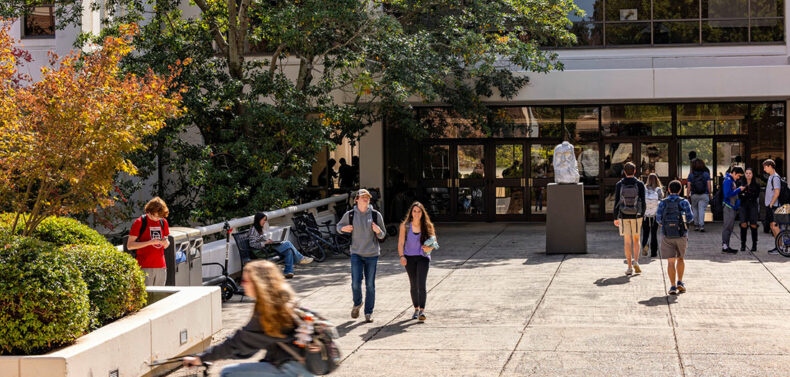Students at the University of Georgia will pay more for tuition next school year.
On Apr. 16, the Board of Regents for the University System of Georgia approved higher tuition rates starting this fall. Twenty-six public colleges operating under the USG, including UGA, will see a 2.5% hike for in-state tuition and a 5% increase for out-of-state tuition. A new tier established for out-of-country students is set to be 2% higher than costs for out-of-state students. These changes apply to both undergraduate and graduate programs.
Currently, the flat rate of tuition at UGA for a full-time undergraduate student per semester is $4,895 in-state and $14,415 out-of-state. Housing, meal plans, course materials and other expenses can set students back another $17,000 a year, according to UGA estimates.
Besides tuition, the board has approved increases in other areas as well such as mandatory and elective fees, housing rates and food services. Mandatory fees were adjusted for 20 of the 26 USG institutions. These fees cover the costs of basic health care, transportation, activities and facility usage for individual students, and at UGA, they will be rising by a few dollars from $695 to $708 total. The point of the new structure is to address the growing number of students who take fully online courses. Those students will now be charged an online learning fee equivalent to their university’s technology fee and 50% of existing mandatory fees. In addition, housing rates are set to increase by $100–136 per semester for all UGA dorms, and the prices of meal plans will increase by $26–82 depending on the type.
According to the board, “Escalating costs for goods and services, increased salary requirements coupled with competition from the private sector and overall inflation has created the need for tuition increases in FY 2025.”
Since 2019, tuition has been kept flat at all USG institutions except for Middle Georgia State University. The board also emphasized that average USG tuition prices rank sixth lowest in the country compared to other public universities. Thus, the recommended strategies for FY 2025 are supposed to “balance affordability, sustainability and quality at all institutions.”
Students at UGA showed mixed reactions toward this development. Third-year advertising student Sandy Ha, 20, is concerned about how increasing costs will affect the student population as a whole. While she relies on financial aid to cover most school expenses, she worries that the rising tuition rates might impact her future award amounts and out-of-pocket costs.
“I think this increase will harm the student body more than anything,” Ha said. “Several of my friends already experience so much stress from finances, school and family relationships. This will just make it more difficult.”
Likewise, third-year psychology student Ella Mappin, 20, believes that tuition is expensive enough as it is. She stated that a lot of students are only able to afford college through federal aid, and that recent decisions could exacerbate the process. As an out-of-state student from California, Mappin relies on her parents for tuition costs while paying for living expenses herself.
“My parents pay for both me and my sister to go out of state for college, so I feel tuition will affect the stress level of my family, as my dad is the only one who works,” Mappin said.
Others, like fourth-year psychology student Alyssa Moreno, 22, are indifferent to the rise in tuition because it seems inevitable in today’s inflationary economy. Under her HOPE scholarship, Moreno is only responsible for half of her tuition, and her family had arranged a student loan to cover the remaining costs. This fall, Moreno will be attending graduate school at UGA for her certification in applied behavior analysis which will require her to take out more loans. Graduate students are generally not eligible for the HOPE or Zell Miller scholarship.
“With my loan, this [increase] is something I’ve been prepared to take with me for the years to come. Debt is just something a majority of students have to carry with them,” Moreno said.
Like what you just read? Support Flagpole by making a donation today. Every dollar you give helps fund our ongoing mission to provide Athens with quality, independent journalism.










